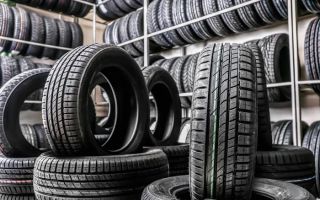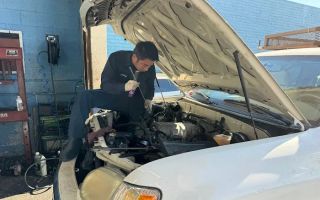How to Keep Your Car's Exhaust System in Top Condition
1. Understanding the Exhaust System
As a car owner, we all know how essential it is to keep our vehicles in good shape. But have you ever thought about your car’s exhaust system? The exhaust system plays a critical role in your car’s performance and environmental impact. Its job is to guide harmful gases away from the engine and out of the vehicle. It includes components like the exhaust manifold, catalytic converter, muffler, and exhaust pipes, all working together to minimize emissions and reduce noise.
In my own experience, I didn’t realize just how important this system was until one day, my car started making strange noises while driving. Turns out, the muffler was damaged, which led to excessive noise and poor performance. From that moment, I became more aware of how much I rely on this system to ensure smooth driving. So, let’s dive into how you can maintain your exhaust system to keep your car running efficiently.
2. Common Problems with the Exhaust System
While your car’s exhaust system is designed to last for many years, it’s not immune to wear and tear. Over time, exposure to extreme temperatures, dirt, and moisture can cause parts of the exhaust system to rust or wear down. One of the most common issues I’ve encountered is rust, especially if you live in areas that use salt on the roads during winter. Salt can cause severe corrosion on exhaust pipes and other metal components, leading to holes that can affect your car’s performance.
Other problems to look out for include:
- Clogged Catalytic Converter: A clogged converter can cause your engine to run poorly, leading to a decrease in fuel efficiency.
- Leaking Exhaust Manifold: If there’s a crack or leak in the manifold, it can cause exhaust fumes to leak into the cabin, creating a health hazard.
- Damaged Muffler: A damaged muffler will make your car louder and reduce your vehicle’s ability to manage sound.
Paying attention to these issues early can save you from costly repairs down the road. In my case, the muffler damage resulted in a visit to the mechanic, which could have been avoided if I had caught the problem earlier.
3. Signs Your Exhaust System Needs Attention
So, how do you know when your exhaust system is in trouble? It’s not always easy to spot problems right away, but there are certain signs you can watch for that indicate the need for maintenance. Here’s what I’ve learned over time:
- Increased Engine Noise: If your car becomes noticeably louder when driving, especially when accelerating, this could be a sign of a faulty muffler or exhaust pipe.
- Decreased Fuel Efficiency: A well-maintained exhaust system helps your car run more efficiently. If you notice that you’re filling up more frequently, it could be due to an issue with the exhaust system, such as a clogged catalytic converter.
- Strange Smells: If you start noticing unusual smells, particularly the smell of sulfur or rotten eggs, it could indicate that the catalytic converter is malfunctioning.
- Vibrations or Pulling: Any unusual vibrations while driving or a pulling sensation when you’re accelerating might point to an exhaust leak or damaged exhaust components.
Recognizing these signs can prevent further damage to your vehicle. I learned the hard way after driving with a rattling muffler for too long—it ended up costing me more than it would have if I’d dealt with the issue earlier!
4. Routine Maintenance for Your Exhaust System
Maintaining your exhaust system doesn’t have to be complicated. Regular inspections can go a long way in preventing major issues. Here are a few routine tasks you can do to keep everything in working order:
- Check for Leaks: Regularly inspect your exhaust system for any visible leaks or holes. If you find one, get it fixed as soon as possible.
- Inspect the Muffler: The muffler can become clogged or corroded over time. Check it for rust and replace it if necessary.
- Clear Out the Exhaust Pipe: Keep the exhaust pipe clear of debris and dirt. An obstructed exhaust can cause poor engine performance and exhaust buildup.
- Replace the Oxygen Sensor: The oxygen sensor is responsible for regulating the amount of fuel burned. If it’s not working properly, it could affect your car’s fuel efficiency.
I always take a moment to check my car’s exhaust system during oil changes. While it might not be the most glamorous part of car maintenance, it’s a critical aspect that can save me time and money in the long run.
5. Professional Exhaust System Care
While there are many simple maintenance tasks you can handle on your own, it’s important to take your car to a professional for an inspection every once in a while. A certified mechanic can identify problems you might have missed and can provide more in-depth repairs. For example, when my exhaust manifold developed a small crack, I took it to a mechanic, who was able to patch it up before it became a major issue.
If you ever find yourself in a situation where your exhaust system is beyond repair, the mechanic will also help you find the best replacement parts. Finding the right parts for your car is essential, so it’s important to trust a professional to help guide you in the right direction.
6. Conclusion
Maintaining your car’s exhaust system is key to ensuring your vehicle runs smoothly, efficiently, and safely. By staying on top of routine checks, watching out for warning signs, and addressing issues promptly, you can avoid major repairs and extend the lifespan of your exhaust system. From personal experience, I can say that a little bit of preventative maintenance goes a long way in keeping your car in top shape. If you need help with towing or any other car service, feel free to visit Rescue & Towing to find the most suitable towing services in your area. They can guide you to the best local experts who can help keep your car running smoothly.




























